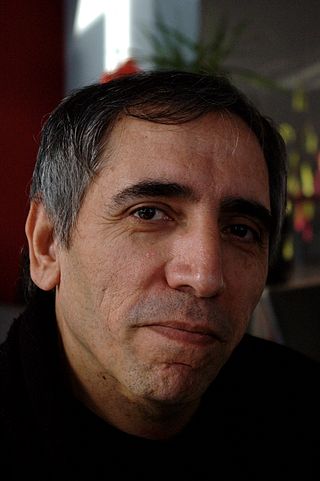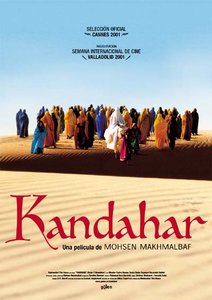Related Research Articles

Afghanistan, officially the Islamic Emirate of Afghanistan, is a landlocked country located at the crossroads of Central Asia and South Asia. Referred to as the Heart of Asia, it is bordered by Pakistan to the east and south, Iran to the west, Turkmenistan to the northwest, Uzbekistan to the north, Tajikistan to the northeast, and China to the northeast and east. Occupying 652,864 square kilometres (252,072 sq mi) of land, the country is predominantly mountainous with plains in the north and the southwest, which are separated by the Hindu Kush mountain range. Kabul is the country's largest city and serves as its capital. As of 2021, Afghanistan's population is 40.2 million, composed of ethnic Pashtuns, Tajiks, Hazaras, Uzbeks, Turkmens, Qizilbash, Aimak, Pashayi, Baloch, Pamiris, Nuristanis, and others.

The foreign relations of Afghanistan are in a transitional phase since the 2021 fall of Kabul to the Taliban and the collapse of the internationally-recognized Islamic Republic of Afghanistan. No country has recognised the new regime, the Islamic Emirate of Afghanistan. Although some countries have engaged in informal diplomatic contact with the Islamic Emirate, formal relations remain limited to representatives of the Islamic Republic.

The Taliban, which also refers to itself by its state name, the Islamic Emirate of Afghanistan, is a Deobandi Islamic fundamentalist and Pashtun nationalist militant political movement in Afghanistan. It ruled approximately three-quarters of the country from 1996 to 2001, before being overthrown following the United States invasion. It recaptured Kabul on 15 August 2021 after nearly 20 years of insurgency, and currently controls all of the country, although its government has not yet been recognized by any country. The Taliban government has been criticized for restricting human rights in Afghanistan, including the right of women and girls to work and to have an education.

The Soviet–Afghan War was a protracted armed conflict fought in the Democratic Republic of Afghanistan from 1979 to 1989. It saw extensive fighting between the Soviet Union, the DRA and allied paramilitary groups against the Afghan mujahideen, foreign fighters, and smaller groups of anti-Soviet Maoists.
The following lists events that happened during 2001 in Afghanistan.

Mohsen Makhmalbaf is an Iranian film director, writer, film editor, and producer. He has made over 20 feature films, won 50 awards, and been a juror in more than 15 major film festivals. His award-winning films include Kandahar; his latest documentary is The Gardener and latest feature The President.

Kandahar is a 2001 Iranian film directed by Mohsen Makhmalbaf, set in Afghanistan during the rule of the Taliban. Its original Afghan title is Safar-e Ghandehar, which means "Journey to Kandahar", and it is alternatively known as The Sun Behind the Moon. The film is based on a partly true, partly fictionalized story of Nafas, a successful Afghan-Canadian woman played by Nelofer Pazira.

The Northern Alliance, officially known as the United Islamic National Front for the Salvation of Afghanistan, was a military alliance of groups that operated between late 1996 to 2001 after the Islamic Emirate of Afghanistan (Taliban) took over Kabul. The United Front was originally assembled by key leaders of the Islamic State of Afghanistan, particularly president Burhanuddin Rabbani and former Defense Minister Ahmad Shah Massoud. Initially it included mostly Tajiks but by 2000, leaders of other ethnic groups had joined the Northern Alliance. This included Karim Khalili, Abdul Rashid Dostum, Abdullah Abdullah, Mohammad Mohaqiq, Abdul Qadir, Asif Mohseni, Amrullah Saleh and others.

In This World is a 2002 British docudrama directed by Michael Winterbottom. The film follows two young Afghan refugees, Jamal Udin Torabi and Enayatullah, as they leave a refugee camp in Pakistan for a better life in London. Since their journey is illegal, it is fraught with danger, and they must use back-channels, bribes, and smugglers to achieve their goal.

Afghan refugees are citizens of Afghanistan who were forced to flee their country as a result of wars, persecution, torture or genocide. The 1978 Saur Revolution followed by the 1979 Soviet invasion marked the first major wave of internal displacement and international migration to neighboring Iran and Pakistan; smaller numbers also went to India or to countries of the former Soviet Union. Between 1979 and 1992, more than 20% of Afghanistan's population fled the country as refugees. Following the Soviet withdrawal in 1989, many returned to Afghanistan, however many Afghans were again forced to flee during the civil war in the 90s. Over 6 million Afghan refugees were residing in Iran and Pakistan by 2000. Most refugees returned to Afghanistan following the 2001 United States invasion and overthrow of the Taliban regime. Between 2002 and 2012, 5.7 million refugees returned to Afghanistan, increasing the country's population by 25%.

The 1996–2001 Afghan Civil War took place between the Taliban's conquest of Kabul and their establishing of the Islamic Emirate of Afghanistan on 27 September 1996, and the US and UK invasion of Afghanistan on 7 October 2001: a period that was part of the Afghan Civil War that had started in 1989, and also part of the war in Afghanistan that had started in 1978.
The Soviet–Afghan War had an important impact in popular culture in the West, due to its scope, and the great number of countries involved. The Russian-Ukrainian film The 9th Company, for example, became a blockbuster in the former USSR earning millions of dollars and also representing a new trend in Russia in which some domestic films are "drawing Russian audiences away from Hollywood staples." The use of the war in Russian cinema has attracted scholarly attention as well. Some of this attention focuses on comparisons of the conflict with other modern wars in Vietnam and Iraq. Other work focuses on the war and fictional accounts of it in the context of Soviet military culture. Even when not directly portrayed, service in the war is sometimes used as a backstory for Russian characters to explain their combat prowess, such as in the manga and anime series Black Lagoon.

There is a large population of Iraqis in Iran, including Iranian citizens of Iraqi origin or descent, as well as Iraqi citizen expatriates. According to the 2001 Iran census, there were roughly 203,000 Iraqis living in Iran; a UNHCR report counts 204,000 Iraqis living in Iran. The actual figure is likely to be much higher than this, perhaps exceeding 500,000, as many Iraqis gained Iranian citizenship while in Iran. In recent years, many have returned to Iraq following the fall of the Saddam Hussein regime.
Barefoot to Herat is a 2002 Iranian film by Majid Majidi. It is a documentary about the plight of Afghan refugees just after the 2001 military offensive against the Taliban.

Diplomatic relations between Afghanistan and Greece, have existed for centuries.
Tajiks in Pakistan are residents of Pakistan who are of Tajik ancestry. The Tajiks are a Persian-speaking Iranian ethnic group native to Central Asia, living primarily in Afghanistan, Tajikistan, and Uzbekistan.
Afghans in Pakistan are temporary residents from Afghanistan who are registered in Pakistan as refugees and asylum seekers. They fall under the jurisdiction of the United Nations High Commissioner for Refugees (UNHCR). Most of them were born and raised in Pakistan during the last four decades. Additionally, there are also Special Immigrant Visa applicants awaiting to immmigrate to the United States. Many Afghans in Pakistan receive financial support from family members in the Afghan diaspora.
Afghans in Iran are citizens of Afghanistan who are temporarily residing in Iran as refugees or asylum seekers. They form the largest percent of the Afghan diaspora. The first wave of Afghans were admitted to Iran after the start of the Soviet–Afghan War in 1979.
United Nations Security Council resolution 1193, adopted unanimously on 28 August 1998, after recalling Resolution 1076 (1996) concerning Afghanistan, the Council discussed the deteriorating political, military and humanitarian situation in Afghanistan during the ongoing civil war in the country.
Torbat-e Jam is an Afghan refugee camp in eastern Iran, established around 1998. The camp, as of 2008, housed 5,000 Afghan refugees on a 100-hectare compound of permanent brick housing, schools and clinics, and a mosque.
References
- 1 2 Z magazine, Volume 14. Institute for Social and Cultural Communications, 2001
- ↑ World Refugee Survey 1998. U.S. Committee for Refugees, 1998
- ↑ Mario Falsetto, Liza Béar. The Making of Alternative Cinema: Beyond the frame : dialogues with world filmmakers. Praeger, 2008. ISBN 0-275-99941-6, ISBN 978-0-275-99941-4. Pg 227